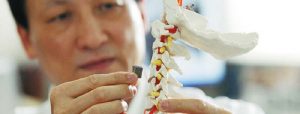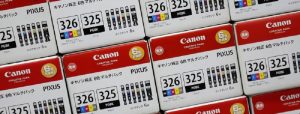The explosion of an unmanned Antares rocket bound for the International Space Station taught a hard lesson to students across the country whose science experiments were included in the payload: In science and in space, failure sometimes comes with the territory.
“I think the lesson is, sometimes in life things don’t go the way you think they’re going to go,” Randy Speck, the superintendent of Madison District Public Schools in Michigan, told NBC News.
That’s especially true for a quartet of students in Speck’s district: Four Iraqi refugee girls whose project was one of the 18 student flight experiments aboard the cargo ship attached to Orbital Sciences’ failed Antares rocket meant to carry supplies to the International Space Station. The projects were chosen from among nearly 1,500 proposals submitted by students in school districts in the U.S. and Canada under the Student Spaceflight Experiments Program.
Speck’s Iraqi student foursome at Wilkinson Middle School designed an experiment that would have tested whether iodine tablets can purify water in space. Instead, they watched in shock as the rocket — and their project that took four months of collaboration done in both Arabic and English — burst into flame.
“When the rocket started going up and there was a lot of fire, I was surprised,” said Regina Alsabagh, 14, who watched the launch at her brother’s house. “I was sad and scared if there was a person on the rocket. I didn’t know.”
Regina and her three teammates — all of whom fled to the U.S. with their families — were immediately concerned that a crew had been hurt in the explosion, said their enrichment teacher Angel Abdulahad (who helped translate some portions of the girls’ answers in an interview with NBC News).
Once the students were assured that the craft was unmanned, the tears came.
“We put a lot of effort into an experiment and we watched it go into flames,” said Farah Sabah, 14.
Speck, meanwhile, was rendered speechless as he watched the failed launch.
“I’m supposed to be more educated than this, but frankly, last night just sucked,” he said. “I was watching in my office and a custodian asked if he could peek. When it exploded he said, ‘Well, that doesn’t look good. I said, ‘It certainly doesn’t.’ He went back to work and I stared at my screen for 10 minutes.”
A local news station contacted Speck about the loss of the experiment, and Alsabagh, Sabah and their 13-year-old teammates Maryam Kafra and Israa Alfadhli appeared on the show. Speck told them during the appearance that they will have the chance to re-submit their experiment next year — at no cost to the district — which immediately cheered them.
Afterward Speck took the girls to breakfast at a diner near the school, where “a bunch of old guys who eat there every morning had seen the girls on TV, so they pointed and clapped when we walked in. It was just so special, and that really helped their spirits.”
“Yesterday I was so sad,” Alfadhli said. “Today I feel better because I know no one got hurt, and we’ll be able to do it again.”
Alsabagh agreed: “I’m so happy we got another chance because that’s why I am here, living, to do something that will be good. My future self will be thankful for it.”
Kafra said failure is part of the science process, “which is beautiful. I really like that part of science.”
Read more: Hard Lesson: Rocket Blast Teaches Teens Cost of Discovery







